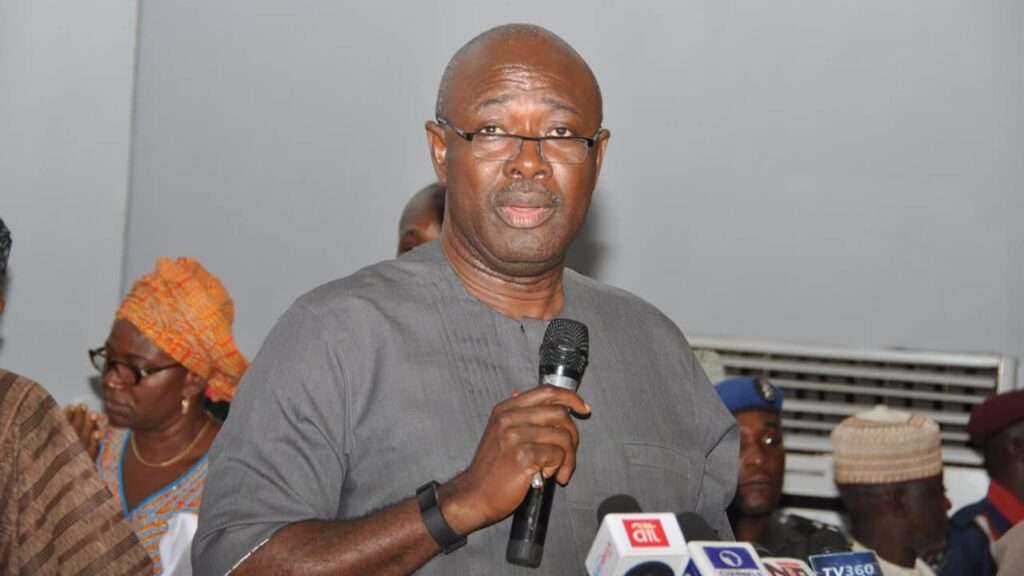Nigeria’s oil sector recorded notable achievements in 2024, laying the groundwork for increased production, efficiency, and economic growth in 2025, according to the Minister of State for Petroleum Resources (Oil), Sen. Heineken Lokpobiri.
Sen. Lokpobiri highlighted key accomplishments across the upstream, midstream, and downstream sectors. These advances, he said, were the result of targeted reforms and measures that addressed critical challenges in the oil industry.
The minister emphasized the government’s efforts to stabilize and revitalize the oil sector, which has long been a cornerstone of Nigeria’s economy.
Significant strides were made in boosting crude oil production, a critical goal amid declining output in recent years. Lokpobiri attributed the gains to the deployment of advanced technology, improved security measures to curb oil theft, and the reactivation of dormant oil wells.
“Through focused interventions, we ramped up production and ensured that the upstream sector contributes effectively to national revenue,” Lokpobiri said.
The midstream sector witnessed significant infrastructure improvements, particularly in pipeline rehabilitation and natural gas processing. These developments aimed to enhance the transportation of oil and gas while reducing losses and inefficiencies.
Nigeria also advanced its gas monetization initiatives, aligning with the federal government’s Decade of Gas initiative to transition from oil dependency to a diversified energy economy.
In the downstream sector, efforts to improve fuel availability and affordability were highlighted. Lokpobiri noted the success of deregulation policies that allowed private sector participation, stabilizing fuel supply and reducing queues at filling stations.
Furthermore, the operationalization of the Dangote Refinery—a major milestone—significantly reduced Nigeria’s reliance on imported petroleum products, cutting down foreign exchange expenditures and creating job opportunities.
“I express profound gratitude to President Bola Ahmed Tinubu for the privilege to serve and for his unwavering support in achieving our ministerial deliverables,” he said.
Tinubu’s administration prioritized economic recovery, with the oil sector serving as a critical component of this strategy. The government’s efforts to attract foreign investment and strengthen regulatory frameworks contributed to the progress reported.
2025 Outlook: A Profitable and Sustainable Industry

Looking ahead, Sen. Lokpobiri expressed optimism about the future of Nigeria’s oil industry, projecting a more profitable and sustainable sector in 2025.
The government plans to focus on further increasing oil production, expanding gas utilization projects, and enhancing environmental sustainability within the sector.
Lokpobiri called for continued collaboration with Nigerians and industry stakeholders to sustain the momentum achieved in 2024. He emphasized the importance of partnerships in realizing the sector’s potential and driving national development.
“To achieve this, I humbly seek the continued partnership of Nigerians and all relevant stakeholders in 2025 and beyond,” he said. The global energy transition presents opportunities for Nigeria to diversify its energy portfolio. Initiatives in renewable energy and gas monetization can position Nigeria as a leader in Africa’s energy transformation.
“The past year has been a transformative period for our oil sector, marked by significant strides towards delivering prosperity to Nigerians.
“As we enter 2025, we remain steadfast in our commitment to ensuring the oil sector contributes meaningfully to the nation’s growth.”
Sen. Heineken Lokpobiri, Minister of State for Petroleum Resources (Oil)
The achievements of Nigeria’s oil industry in 2024 signal a turning point for the sector, with significant improvements in production, infrastructure, and policy reforms. These advancements have set the stage for a more resilient and sustainable oil industry in 2025, poised to drive economic growth and national development.
As the government continues to prioritize collaboration and innovation, the oil sector is expected to remain a cornerstone of Nigeria’s economy while adapting to global energy trends. The commitment of leaders like Sen. Lokpobiri and the support of President Tinubu underscore the potential for continued success in the years ahead.
READ ALSO: South Africa Bolsters Border Security Amid Mozambique Unrest



















